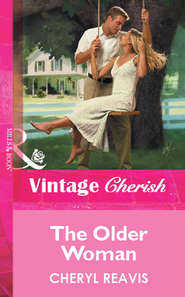По всем вопросам обращайтесь на: info@litportal.ru
(©) 2003-2024.
✖
An Unexpected Wife
Настройки чтения
Размер шрифта
Высота строк
Поля
“No. He didn’t.”
“I’m sure he was upset about that, as well.”
“He is Maria’s brother. He would naturally be concerned about her. Fortunately I could reassure him.”
“Indeed yes,” Mrs. Justice said. Mrs. Kinnard and Mrs. Russell both gave her a hard look.
They could hear a second arrival in the foyer and then heavy footsteps going up the stairs.
“That must be the chaplain, don’t you think? Poor Robbie,” Mrs. Justice said again.
“Poor Robbie, indeed,” Mrs. Kinnard said, setting her cup down hard despite her desire to keep Maria’s mismatched tea service safe. “He’ll get no spiritual comfort there.”
“Sounds like their army surgeon to me,” Mrs. Russell said. “For a thin man, he has a very heavy tread. But then they all do.”
Kate took a breath and tried not to consider what in the world could have been behind the remark. Her head was beginning to hurt, despite the tea and the excellent cookies. No matter what Sergeant Major Perkins thought, there were some things cookies just wouldn’t fix.
“I’d like to say a prayer, if I may,” Mrs. Justice said.
“For whom?” Mrs. Kinnard asked, as if prayers came under her jurisdiction, as well.
“For our Robbie, of course,” she said. “If you would bow your heads please.” She waited a moment for them to comply, then continued. “Dear Lord, we don’t know where Robert Markham has been or what kind of trouble and heartache he’s had, but we ask you—now that he’s home again and safe—please guide us so we can know what to do for him, and please don’t let us do anything to add to his worries and make them worse. Amen.”
Mrs. Justice smiled and looked around at each of them. “There. I feel so much better now.”
So do I, Kate thought. Incredibly, Mrs. Justice, with her gentle, forthright prayer, had reminded all of them that Robert Markham would likely need help—but none of them should arbitrarily decide what that help should be. She wondered if Robert had any idea what a staunch ally he had in this kind and pleasant woman.
Someone knocked softly on the door, and without waiting to be admitted, Mrs. Kinnard’s daughter Valentina swept into the room.
“Ah! Here you are, Mother,” she said. She looked...stunning. She would have been perfectly at home in any salon in Philadelphia.
“Imagine my surprise when I arrived home—finally—the snow on the road from Mocksville was terrible—Aunt Matilda and Uncle Bart send their love, by the way. And here I discover you’re nowhere to be found and the servants tell me you’re in the middle of all this excitement about Robert Markham—and my word, there are soldiers all over the place. How is it that this house is always overrun with soldiers?”
“Perhaps because a colonel lives here,” Kate said mildly.
“Oh. Well. Yes. Hello, Miss Woodard,” Valentina said, smiling. “You’re looking very...fine today.”
Kate was well aware that she didn’t look fine at all. She’d been alternating the same travel dress with a plain calico morning dress she kept at her brother’s house specifically for getting down on the floor and playing with the boys. The fact that most of her wardrobe was likely sitting in the Philadelphia train station meant she might be alternating the two dresses for some days hence, turning whichever one she’d just worn wrong side out and hanging it on the rack in the airing room next to the nursery each night.
“You’re very kind, Valentina, but I’m not at my best, I’m afraid. What a lovely dress and hat you have on,” Kate said truthfully, openly admiring the bright orange shantung day bodice Valentina wore above a pale blue skirt with a pleated cream underskirt showing beneath it, and cream-colored lace at her throat and wrists. “Would you like some tea?”
“Yes—”
“No,” Mrs. Kinnard assured them both.
“No,” Valentina said dutifully. “I’m very apt to spill. Or break,” she added, completely ignoring the look her mother gave her.
“So am I,” Kate said. “I was only just telling your mother I ought not pour the tea because of it. Do you suppose there is anything we can do about it?”
“Perhaps there’s hope for you, Miss Woodard,” Valentina said. “As for myself—I am quite useless. Or so my mother tells me. You wouldn’t believe the number of dresses and tablecloths and teacups I’ve wrecked.”
Kate couldn’t keep from smiling. For the first time in their numerous encounters since Max and Maria had married, Kate found herself coming very close to liking this young woman. Today she seemed to have no guile at all, despite what must have been her mother’s diligent tutelage.
“So tell me. Is it true that Robert Markham has returned?” Valentina asked the room at large.
“Yes,” Kate answered, because no one else seemed inclined to.
“Is he very changed— Oh, that’s right. You wouldn’t know. Is he changed, Mother?”
“I couldn’t say. I haven’t been allowed to see him,” Mrs. Kinnard said, and Valentina actually laughed.
“Oh, dear. Someone is going to suffer for that.” Valentina was openly teasing her mother—and somebody was going to suffer for that, too, Kate thought.
But Valentina didn’t seem to be worried in the least. She was so different from the Valentina Kate had grown accustomed to, and she couldn’t help but wonder why.
“Miss Woodard, I believe we were trying to ascertain whether or not Robert said anything sensible. Are you or are you not going to enlighten us?” Mrs. Kinnard said.
“He said he was grateful to you, Mrs. Kinnard—and to Mrs. Justice and Mrs. Russell for establishing his identity,” Kate said.
“As he should be,” Mrs. Kinnard said, not about to give an inch. “Certainly we will have to find out where he’s been all this—”
“Why?” Kate asked, daring to interrupt. “There’s no need for him to justify his whereabouts to anyone, except perhaps Maria. She is the one he has hurt the most.”
“Well, there’s El—” Mrs. Justice started to say.
“And that is not fit for civilized discussion,” Mrs. Kinnard snapped. “What she became is clearly what she always was.” She looked at Kate. “Or perhaps things are done differently where you come from and there is no accountability for bad behavior.”
I’m too tired for this, Kate suddenly thought. What little sleep she’d had had been on one of the boys’ cots in the downstairs nursery wing of the house. Mrs. Kinnard had more than proved that she intended to go to any length necessary to be offended, and Kate just couldn’t endure another round of verbal sparring.
She stood instead. “I believe I’ll go see if the sergeant major can tell me what is happening with my brother-in-law,” she said, hoping that the term “brother-in-law” would induce Mrs. Kinnard to understand whose claim on Robert Markham took precedence. This was a family matter. No one could pacify Mrs. Kinnard at this point, least of all Kate, and she had no intention of allowing the woman to meddle where she didn’t belong. Kate had no intention of coming back, either, whether she gleaned any information from Perkins or not. She had to write her letter to Harrison and she had to get away from Mrs. Kinnard before she said something to unravel Max’s fragile hold on a peaceful military occupation altogether.
“I’ll come with you,” Valentina said.
“That’s not necessary—” Kate tried to say, but Valentina ignored her and her mother’s protests.
“Oh, but I want to. You must tell me about the dresses in Philadelphia—after you speak to Sergeant Major Perkins, of course. I get so lonely for my own kind sometimes. We can have a real conversation.”
“Valentina. I require you here,” Mrs. Kinnard said firmly as Kate stepped into the hallway. She could immediately hear raised voices coming from the upstairs. Sergeant Major Perkins stood at the bottom of the staircase, alert but not yet ready to intervene.
“What’s happening?” Kate asked. “Is that the chaplain yelling?”
“Could be. Or it could be your brother-in-law,” Perkins said. “Not sure who’s preaching to who.”
“Aren’t you going to intervene?”
“Not until I hear furniture breaking,” he said calmly. “Most of the time two soldiers yelling at each other won’t mean a lot.”
“Miss Woodard! Wait!” Valentina called behind her, and the sigh Kate had been suppressing for some time got away from her. Clearly her life would have been much simpler if she’d just gotten on that train.











